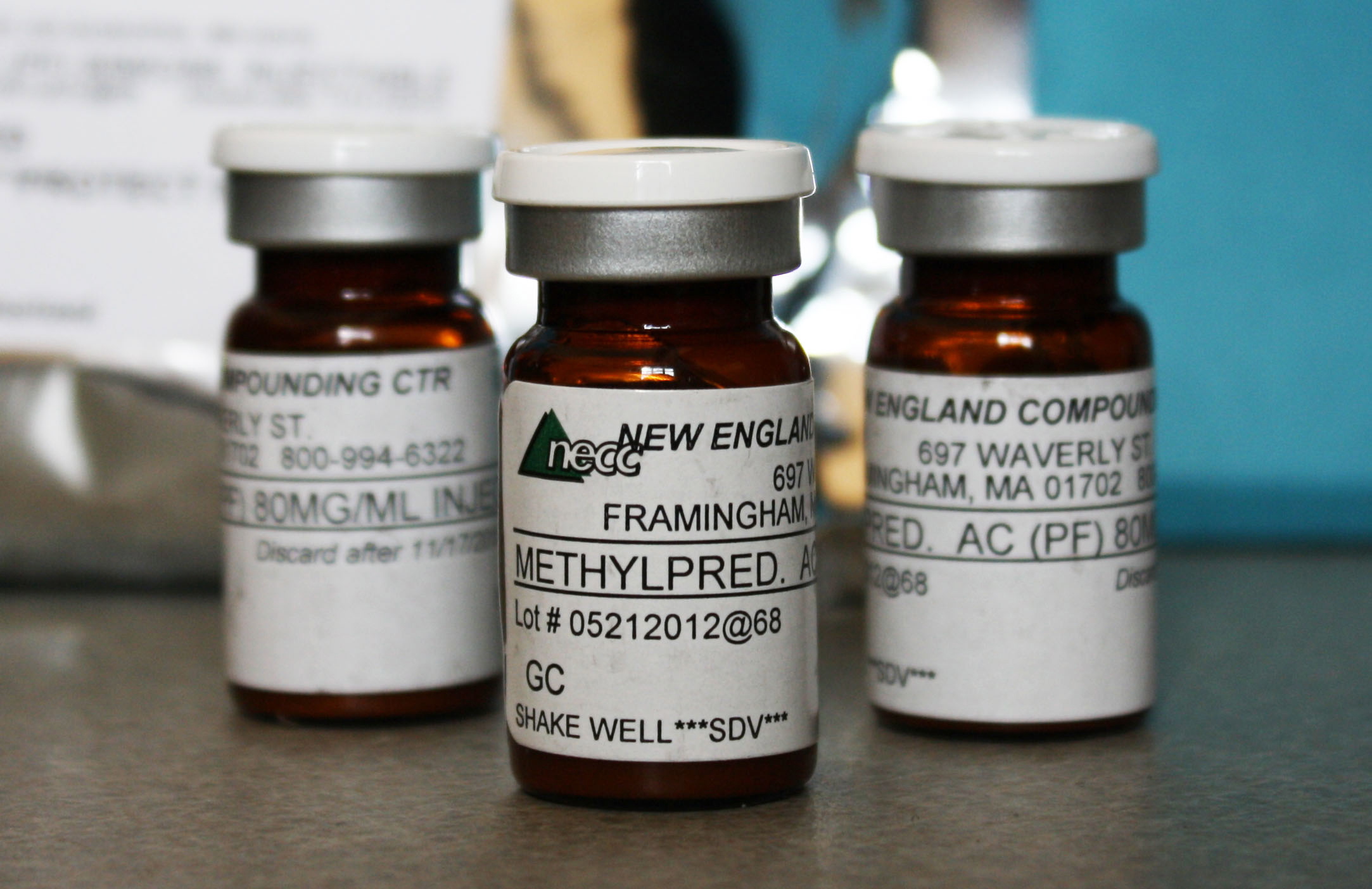WASHINGTON — The deadly meningitis outbreak linked to contaminated pain injections has prompted calls for tighter federal regulation of compounding pharmacies, which have periodically been blamed for crippling and sometimes fatal injuries. But this isn’t the first time Congress has pushed for more authority over the industry.
Such efforts stretch back to the 1990s, and after vigorous pushback by compounding pharmacists, they have left a patchwork of incomplete, overlapping laws, contradictory court rulings and uncertainty about how much power the Food and Drug Administration has to regulate compounders.
And with a gridlocked Congress at its most unproductive in decades, experts don’t expect to see new laws passed anytime soon.
The issue flared up in the past several days after the New England Compounding Center of Framingham, Mass., came under suspicion as the source of the tainted steroid shots that have sickened at least 184 people in 12 states, causing 14 deaths.
Several members of Congress last week promised to introduce legislation giving the FDA greater authority to oversee the specialty pharmacies, which custom-mix drugs for patients for everything from menopause symptoms to cancer. The compounding industry in the U.S. has grown into a $3 billion business with 7,500 pharmacies, according to its trade group.
“It’s incredibly complicated to explain what our authority is and is not, and the nuances of that,” Deborah Autor, FDA’s deputy regulatory commissioner, said Thursday. She suggested the FDA would support new laws to oversee the industry.
Compounding pharmacies are critical for patients who need solutions, creams and other medicines customized for, say, smaller dosages or to remove ingredients that cause allergies. Unlike drugs that are manufactured for mass-market distribution, these products are not subject to premarket review by the FDA.
All pharmacies, including compounding pharmacies, have long been regulated by state pharmacy boards, many of which date back to the 19th century. At that time nearly all drugs dispensed in the U.S. were individually compounded by pharmacists. The law that created the FDA in 1938 gave the agency strict authority over drug manufacturers, which quickly eclipsed pharmacists as the main producers of prescription medicines.
For decades, the state-federal divide persisted, with states overseeing compounders and the FDA policing drug manufacturers.
But in the 1990s, FDA regulators began to more closely scrutinize compounding pharmacies, as their number multiplied and some grew into big businesses. Instead of making individualized products based on a physician’s prescription, companies began mass-producing products and promoting them broadly.
“When you get into that situation, pharmacy compounding can be a disguise for unregulated manufacturing,” said Michael Labson, a food and drug attorney in Washington. Recent drug shortages caused by consolidation among drug manufacturers, among other factors, have only increased demand for compounded alternatives.
In recent years some compounding pharmacies have been blamed for outbreaks. Two people were blinded in Washington in 2005. Three died in Virginia in 2006 and three more in Oregon the following year. Earlier this year, 33 people in seven states developed fungal eye infections.
Compounding experts, including the president of the leading compounding pharmacy trade group, believe the New England Compounding Center crossed the line into full-scale manufacturing.
FDA officials said they followed up with the company after sending a warning letter but did not re-inspect it.



